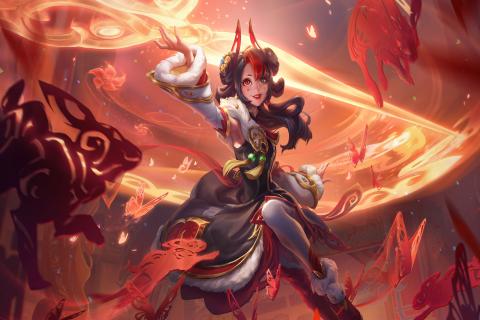The Transformation of Virtual Economies in Online Gaming
Virtual economies have become an integral part of the online gaming landscape, revolutionizing the way players interact and trade within the virtual realm. From the early days of simple coin systems to the current obsession with valuable skins, the role of virtual economies in online gaming has significantly evolved.
For gamers between the ages of 10 and 35 who have a passion for gaming, understanding the dynamics and implications of virtual economies is crucial. This article aims to shed light on the intricacies of virtual economies and their impact on the gaming community.
The Rise of Virtual Economies
In the past, online gaming revolved around basic coin systems where players earned or purchased virtual currency to unlock in-game items or upgrades. However, with the growth of online multiplayer games and the rise of e-sports, virtual economies have gained prominence.
Today, many popular online games feature intricate virtual economies that allow players to buy, sell, and trade valuable in-game assets. One such asset is skins, which are cosmetic enhancements for characters, weapons, or vehicles. These skins hold value among players due to their rarity or visual appeal.
The Significance of Virtual Economies
Virtual economies not only add depth and excitement to the gaming experience but also foster a sense of community and competition. The ability to trade and acquire rare skins or other valuable assets creates a secondary market where players can showcase their skills or invest in virtual assets.
Furthermore, virtual economies have given rise to new professions within the gaming industry. Skin designers, market analysts, and traders have emerged, making a livelihood from trading in-game assets. This highlights the potential economic impact of virtual economies on both the gaming industry and the wider economy.
The Impact on the Gaming Community
Virtual economies have sparked heated debates and discussions within the gaming community. Some argue that the focus on virtual economies detracts from the core gameplay and places too much emphasis on financial transactions. Others contend that virtual economies enhance the gaming experience by providing additional goals and challenges.
However, one thing is certain: virtual economies have captured the imagination of gamers worldwide. Their significance goes beyond the digital realm, with real-world implications such as the creation of online marketplaces, the development of cryptocurrency, and the establishment of e-sports leagues.
The Future of Virtual Economies
As technology advances and online gaming continues to grow, the role of virtual economies is likely to expand further. With the advent of blockchain technology, the concept of true digital ownership and scarcity can be introduced, opening up new possibilities for virtual economies.
Ultimately, virtual economies have become a fascinating and essential aspect of modern online gaming. Their influence on the gaming community is profound, and their future potential is yet to be fully realized.

